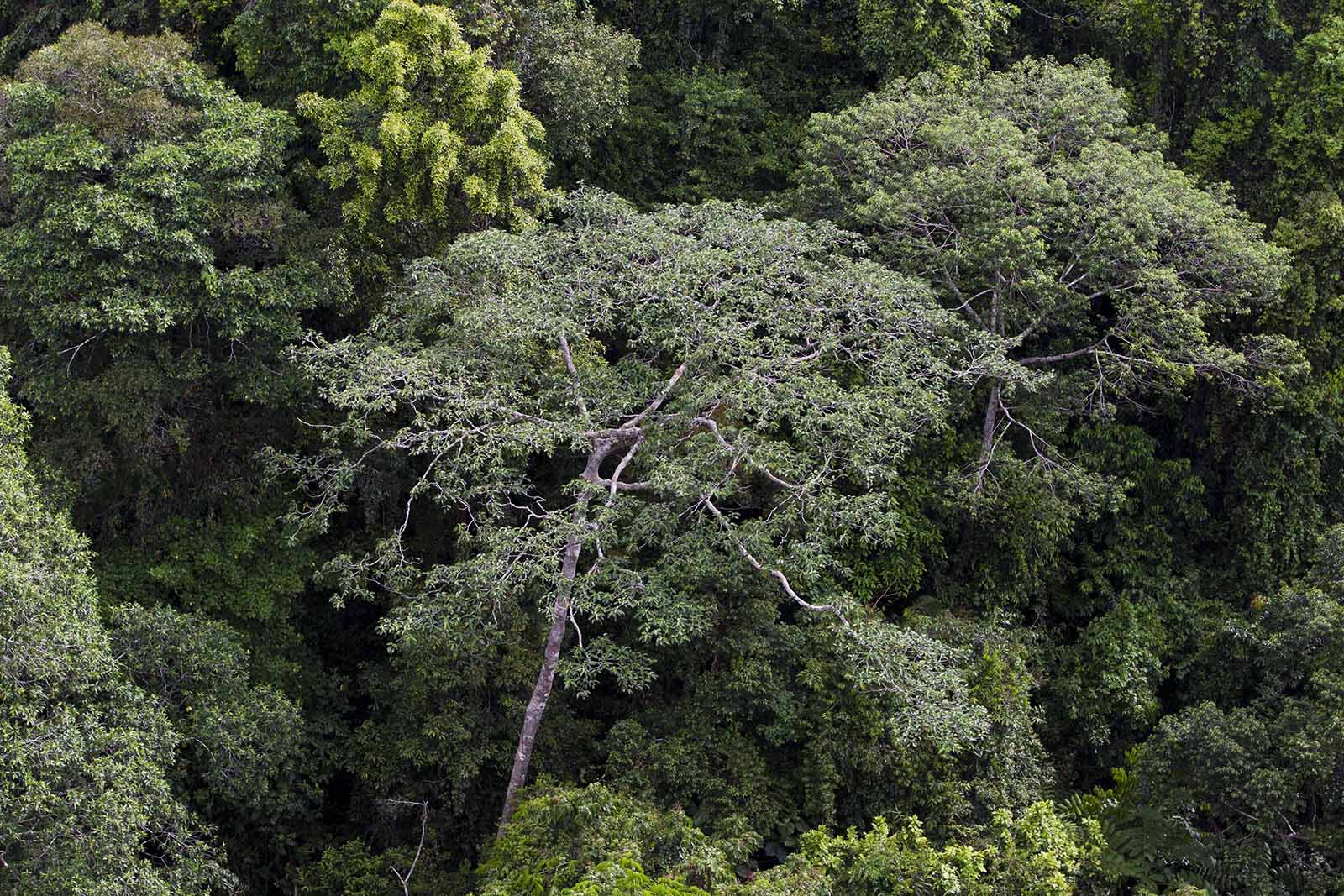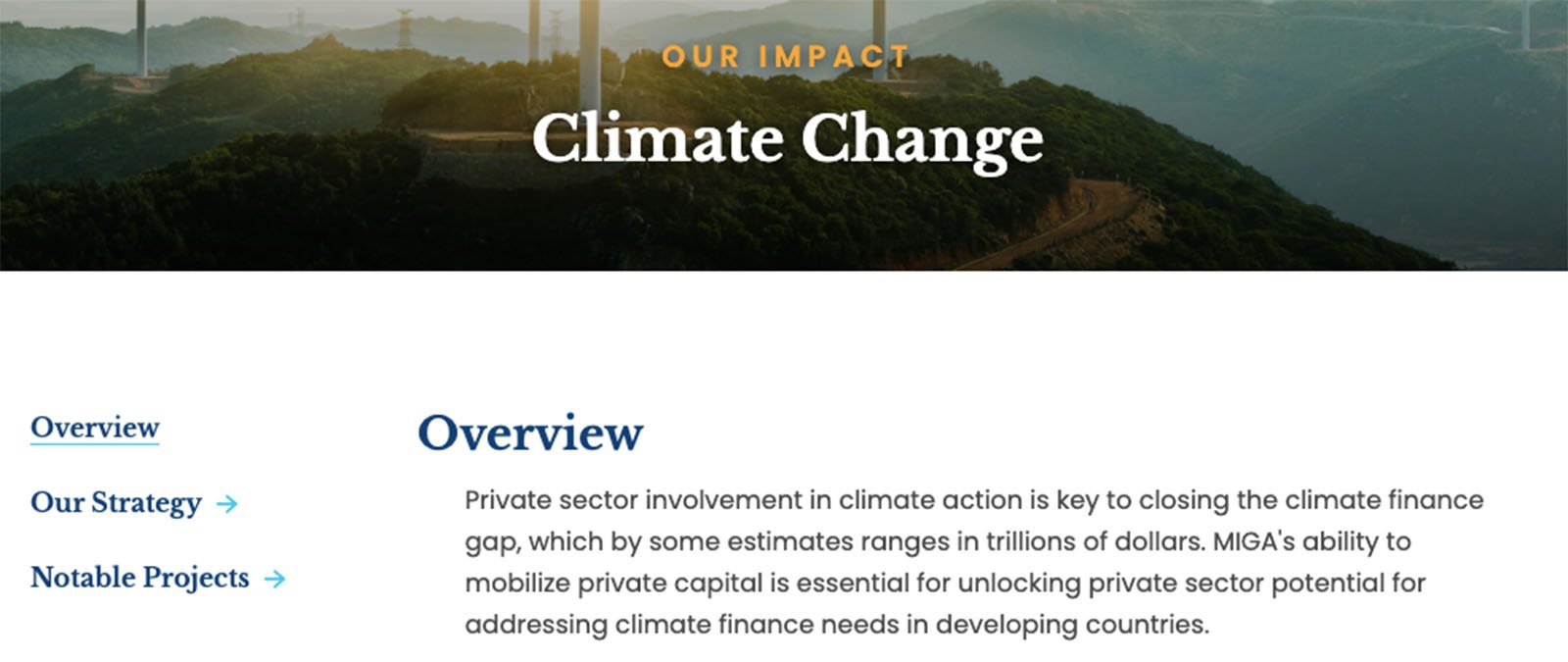Bankrolling the Carbon Cowboys: The World Bank's Carbon Insurance Plans

If the plans move forward, MIGA would not only be insuring a false climate solution that has spectacularly failed to reduce emissions over the past 20 years, but it would also provide insurance against host countries attempting to regulate the carbon trade.
As the climate crisis intensifies, the World Bank finds itself under mounting pressure to take decisive action. However, under the presidency of David Malpass — accused of climate denial — it shamefully shirked its responsibility, funneling billions into fossil fuel projects.
Now, as Ajay Banga begins his term as the new president, the question remains: will the Bank rise to the challenge? Recent developments suggest otherwise. In a display of misplaced priorities, the Bank recently put forward plans for its political risk guarantee arm — the Multilateral Investment Guarantee Agency (MIGA) — to provide insurance against political risks in the voluntary carbon market. This effort to protect investors and project developers comes in the wake of recent series of scandals that have prompted governments in the Global South — where the majority of carbon offsetting projects are located — to tighten their control over the market.
If the plans move forward, MIGA would not only be insuring a false climate solution that has spectacularly failed to reduce emissions over the past 20 years, but it would also provide insurance against host countries attempting to regulate the carbon trade. This dangerous proposal would pave the way for the expansion of a structurally flawed system that has already wreaked social and environmental havoc while failing to solve the climate crisis.
The Voluntary Carbon Market: A Flawed and Extractive System in Crisis
The World Bank blatantly ignores recent research exposing the market’s rampant integrity issues, greenwashing claims, and “junk” carbon offsets that do nothing to genuinely reduce emissions.
MIGA’s plans come at a time of great upheaval for the US$2 billion voluntary carbon market, which allows polluters to ‘offset’ their emissions by purchasing carbon credits from projects that supposedly remove or reduce carbon dioxide emissions.
The World Bank blatantly ignores recent research exposing the market’s rampant integrity issues, greenwashing claims, and “junk” carbon offsets that do nothing to genuinely reduce emissions. Beyond recent scandals, voluntary carbon markets have completely failed to reduce carbon emissions in their two decades of existence because of their deep systemic flaws, making them a threat to achieving the Paris Agreement objectives. A study by the European Commission, for instance, revealed that 85 percent of offset projects under the UN’s Clean Development Mechanism from 2013 to 2020 failed to uphold environmental integrity and reduce emissions.
In addition, carbon offsetting has repeatedly trampled upon the rights of Indigenous and local communities who steward, inhabit, and depend on the lands used for forest carbon offsets. From Papua New Guinea to Malaysia and Peru, communities have been targeted by ‘carbon cowboys’ who lure them with promises of financial gains from carbon credit sales. These unscrupulous actors coerce local groups into signing opaque and exploitative deals, seizing their carbon rights for periods that can last over 100 years.
While the voluntary carbon market is touted as a vital climate financing source, host countries and local communities often only receive a small fraction of the revenues made by foreign developers and financial intermediaries. In Papua New Guinea, for instance, communities in East New Britain claim to have received none of the US$18 million made by US-based New Ireland Hardwood Timber (NIHT) from the sale of 1.3 million carbon credits, which were allegedly issued without their consent. In another case, a Bloomberg investigation revealed that oil giant BP purchased 1.5 million carbon credits from Mexican villagers at a paltry price of US$4 per credit, through an offsetting program facilitated by the World Resources Institute. These villagers worked for several years to safeguard forests, only to receive a meager payment equivalent to little more than a week’s worth of salary per person. The very communities doing the actual work of protecting the environment receive little to no compensation from the sale of credits.
Beyond project developers, money pledged to carbon offsetting projects is siphoned away by a complex network of predatory actors, including registries, traders, brokers, and investors. Speculation on carbon markets is also pervasive, as showed by intelligence firm Allied Offsets, which identified nearly 250 projects where brokers resold credits for at least three times their original purchase price. As a result, a significant portion of the financing intended for climate mitigation projects and local communities only serves to enrich financial intermediaries — primarily wealthy individuals, firms, and organizations based in the Global North.
Resisting Carbon Colonialism
A growing number of countries are taking bold steps to regulate the trade of carbon credits generated within their borders, determined to retain a larger slice of the benefits and push back against exploitative deals.
Challenging this unfair system, governments in the Global South are asserting their authority over the carbon market. A growing number of countries are taking bold steps to regulate the trade of carbon credits generated within their borders, determined to retain a larger slice of the benefits and push back against exploitative deals.
In 2022, Papua New Guinea issued a moratorium on new carbon projects, signaling the government’s intent to establish a regulatory framework for existing and future agreements.[1] Honduras followed suit with a similar measure that same year.
In May 2023, Zimbabwe set a powerful precedent by announcing a new framework for hosting carbon projects. Under this plan, 50 percent of all revenues would go to the state and 20 percent to local communities — with foreign investors limited to 30 percent. Similarly, Kenya has proposed legislation that mandates a minimum allocation of 25 percent of project earnings to local communities. In a parallel move, in June 2023, the governor of Kenya’s Kajiado County revoked all carbon credit deals between private entities and local populations, because of the detrimental impact of the trade on these communities. The momentum has since continued to build. In July 2023, following Zimbabwe’s lead, Malawi and Zambia announced they wanted a greater share of revenues from carbon offsetting projects, while Nigeria issued a warning against unauthorized carbon trading.
In asserting their control, these countries are challenging the dominance of foreign investors and turning the tables on a system that has long exploited their resources. Signalling a shift in perspective, they now view carbon credits as a valuable sovereign asset, as well as a means to achieve their own climate objectives.
MIGA’s Carbon Insurance Plans: An Attempt to Salvage Corporate Interests
If these plans come to fruition, the World Bank would be insuring a false climate solution that does not represent genuine emission reductions and allows polluters to continue extracting and burning fossil fuels with impunity.
Private insurers have so far been reluctant to participate in the voluntary carbon market because of the associated risks, uncertainties, and lack of accountability. The extension of MIGA guarantees to cover risks associated with carbon credits would bridge this gap. This move would help rehabilitate a market that finds itself in the midst of a legitimacy crisis, rocked by scandals, structural flaws, and efforts by countries to restrict the trade.
If these plans come to fruition, the World Bank would be insuring a false climate solution that does not represent genuine emission reductions and allows polluters to continue extracting and burning fossil fuels with impunity. Insuring carbon offsetting projects also shields fraudulent investors and carbon cowboys and enables their exploitative businesses to continue operating without facing reputational risks — it essentially sanctions greenwashing.

Overall, the provision of carbon credit insurance by the World Bank would support an ‘unscalable, unjust, and unfixable” mechanism that exacerbates inequalities and fails to address the urgent challenges posed by the climate crisis.
The expansion of MIGA into the carbon space would also deepen socioeconomic and geopolitical inequalities. Carbon offsetting perpetuates the targeting of the Global South for resource extraction, resulting in the dispossession of Indigenous peoples and local communities. Moreover, this proposal would facilitate investments in so-called ‘high-risk’ countries — categorized as such because they dare to regulate the market. In doing so, MIGA would be offering insurance against host countries that resist and counter carbon colonialism. At a time when the Global South needs US$1 trillion annually to address climate needs, MIGA’s plans fail to address this urgency. It instead provides guarantees that would directly benefit investors, developers, and intermediaries in the Global North. And MIGA would be using public resources to subsidize private investment in carbon offsets, enabling investors to make a profit while shifting financial risks onto governments — a process known as derisking.
Overall, the provision of carbon credit insurance by the World Bank would support an ‘unscalable, unjust, and unfixable’ mechanism that exacerbates inequalities and fails to address the urgent challenges posed by the climate crisis. If it is to live up to its Climate Change Action Plan, the World Bank must take immediate action to suspend plans to engage in the carbon offset market.
Instead of perpetuating existing imbalances and supporting flawed profit-driven initiatives, climate finance must urgently pivot towards equitable and non-market approaches. Such strategies could include significantly increasing taxation on the fossil fuel and aviation industries, as well as implementing a levy on international financial transactions. Additionally, public money needs to be redirected towards real solutions to the crisis that account for historical responsibility, including strengthening the protection of forests, ensuring land rights of Indigenous peoples and local communities, and undertaking a South-led ecosocial energy transition.
- While progress has been made in regulating the market, environmental groups in Papua New Guinea have criticized the government's failure to conduct adequate public stakeholder consultation. ↑
